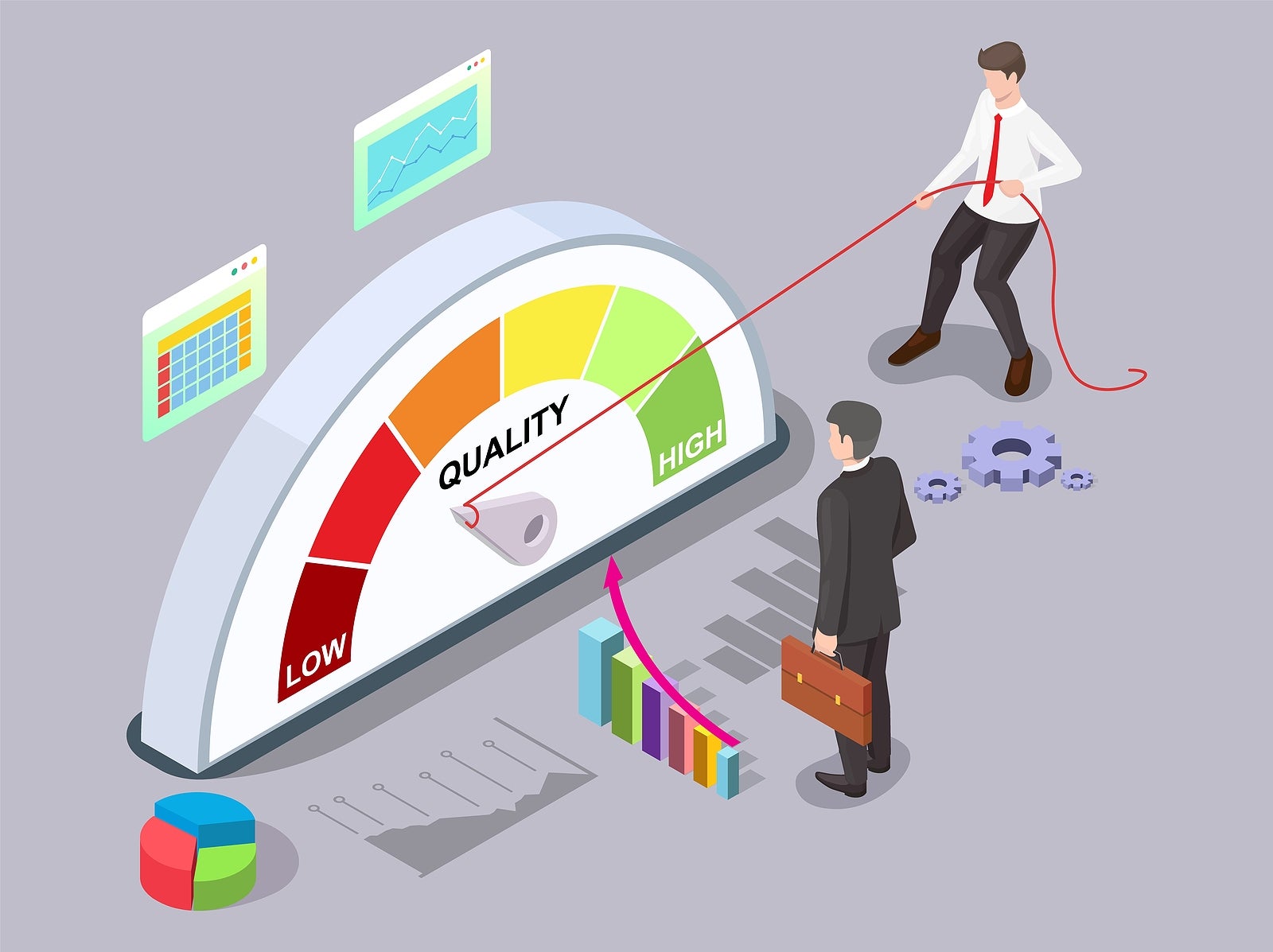
For larger businesses, the rationale of Total Quality Management (TQM) is quite apparent; TQM ensures that nothing falls through the cracks during production. It’s defined as an organization-wide process or program that’s designed to maintain high but sustainable levels of quality and excellence by developing best practices that enhance efficiency and productivity.
As a company grows larger, the need for a TQM program grows with it. It will help companies with customer retention because it focuses on customer satisfaction. TQM’s thrust for quality is based on its goal of providing what the customers expect. As such, it can also boost acquisition by helping a company provide the best product or service possible. A TQM program isn’t limited to production, it encompasses the entire product cycle, including quality of distribution and customer service.
Small-scale businesses tend to overlook TQM for a number of reasons—lack of funds, lack of manpower, and, often, a lack of understanding of TQM and its benefits. It’s easier to set up a small business than it is to maintain one, and it could take years before one can turn a profit.
Moreover, the competition might be stiff in the market you’re trying to penetrate, especially in these uncertain times. One of the main disadvantages of smaller businesses is the scale at which they have to compete. Larger corporations are obviously more in scale in most, if not all, aspects: technology, finance, competencies, and the like. This is where the old adage “quality over quantity” comes into play for small-scale businesses, and a TQM program can help in this regard. Your competitors will evolve through time, and the competition will inevitably become more complex. This is why continuous improvement in quality and the processes that bring it about is necessary.
Why TQM?
A TQM program will help shape an organization’s continuous improvement efforts to keep it competitive through the years. For it to be effective, however, the following should be considered:
- Customer satisfaction.
In the journey toward consistent quality and excellence, it shouldn’t be forgotten that customer satisfaction comes first and foremost. Quality must always be exceptional, but it must also be according to customer expectations. How customers feel about your product and the overall customer experience is equally important because an unhappy customer, on average, shares negative experiences to 9-15 people. - Using real, current data.
The modern business is a data-driven business, and you should be leveraging available data to get insights on the processes that need to be improved or replaced completely. Ensure that you gather and analyze the most current data so you can strategize accordingly. - Evaluating current processes.
Before resorting to new approaches and practices, current ones must be evaluated first. Each person in the organization should be able to evaluate if a process is helping the organization reach its goals and helping provide customer satisfaction. Processes determined to be inefficient should be improved accordingly. - Using a variety of approaches.
Depending on available data, an organization will have different needs. You can use a variety of methods to determine if a process or product requires improvement, including market surveys, focus group discussions, and customer interviews. - Willingness to improve continuously.
The goal of a TQM program should be clear to everyone in the organization so they know what needs to be done to ensure its success. It should be made clear that TQM is not a “one-time thing” but a continuous and constant process that needs to be complied with and may be modified accordingly depending on the current situation. - Open communication.
As mentioned above, letting people across the organization know pertinent information about the TQM program is vital to its success. Everyone needs to agree on the goals and what needs to be done to reach those goals so they can all work together to achieve them. Keeping lines of communication open will help keep everyone on the same page . - Organizational cooperation.
The participation of every individual in the organization is vital if a TQM program is to succeed. Working together will ensure that quality is maintained through the entire process—from production and distribution to customer service and after-sales interactions. Encourage teams and individuals to work together by rewarding them for achieved milestones and reinforcing the fact that the success of the TQM program is the success of the product and the organization.
The Big Picture
Business owners should help employees view the bigger picture by making them understand clearly how their efforts contribute to the organization as a whole. Similarly, they themselves should view the organization from the outside in, considering their current processes, employees, and their product or service at its current state.
Put yourselves in the shoes of a customer and see if your product and brand of service is something that you’re happy with and would want to be a patron of. From there, try to determine what makes you want your product and what doesn’t. This is an excellent starting point for any TQM program. Getting in this mindset, and encouraging others to do the same, will spell continued success for your TQM program and, ultimately, your business.
5606 Views












